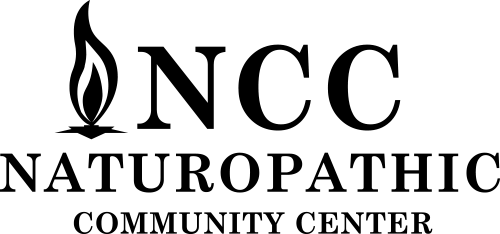Hormones are chemical messengers that signal changes in cells. By attaching to receptor sites on the cell membrane or within the cell, they regulate metabolism, growth, reproduction, and many other functions. Endocrine disrupters are chemicals that attach to these same receptor sites and interfere with the normal function of the reproductive system.
The most well known endocrine disrupters are the xenoestrogens. “Xeno” means strange or foreign. A xenoestrogen is a foreign, or unnatural, estrogen, and it mimics the human hormone estrogen by binding to the receptor sites and over stimulating the cells. By altering our own body’s hormones, this disruption causes birth defects, developmental disorders in children, feminizing effects on males, masculinizing effects on females, infertility, and cancers of the breast, thyroid, prostate, and other organs.
For females, endocrine disrupters cause girls to enter puberty at an early age, and they contribute to masculinizing traits, PMS, uterine fibroids, fibrocystic breasts, endometriosis, and breast and uterine cancer. For males, xenoestrogens also compete with testosterone, not just estrogen. This, then, reduces testosterone levels, reduces sex drive, creates weight gain and loss of muscle tone, and contributes to male breast development, erectile dysfunction, low sperm counts, infertility, undescended testicles, prostate enlargement, and prostate cancer.
Unfortunately, xenoestrogens and other endocrine disrupters have become a part of our daily life experience. They are found in the food we eat, the cars we drive, the furniture we sit on, the plastics that are found everywhere, and the personal care products we use.
Here are some common endocrine disrupters:
DDT: this was used extensively as a pesticide for many years and has been banned from use in most countries. However, it is a persistent organic pollutant, meaning it does not readily break down in the environment. These are believed to be responsible for the decrease in male fertility worldwide as well as birth defects and infertility in animals.
PCB’s: these are chlorinated compounds used in industrial coolants and lubricants. They are also persistent organic pollutants. Exposure to PCB’s has been linked to increased risk of skin, liver, and brain cancer as well as obesity and diabetes.
PBDE’s: similar to PCB’s, these are often found in flame retardant materials (think: furniture fabrics). These contribute to neurological problems and learning disabilities and have the potential to disrupt the thyroid.
Phthalates: these are found in soft toys, flooring, cosmetics, air fresheners, and medical equipment. These may be linked to male reproductive system imbalances.
PFOA (perfluorooctanoic acid): this is used in non-stick coatings. It alters thyroid function and semen quality and may cause early development of breasts and puberty in girls.
BPA (Bisphenol A): this is mostly found in plastics, including plastic bottles, food containers, linings of cans and infant formula cans, and dental materials. BPA has been linked to elevated rates of diabetes, early puberty, decreased sperm counts, obesity, neurological problems, and breast and prostate cancers.
Alkylphenols: these are used as additives for fuels and lubricants and in making fragrances and fire retardant materials as well as precursors to detergents. They are found in rubber products, adhesives, coatings, and tires. Their specific effects have not yet been determined.
There is good news! There are steps that you can take to minimize your exposure and reduce the harmful effects endocrine disrupters create in your body.
First, eat organic foods. Organic foods have lower levels of agricultural chemicals in them. At least, try to buy hormone-free animal products, especially meat, dairy, and eggs. Also, wash all of your produce (both organic and non-organic) with a few drops of Sunshine Concentrate (from Nature’s Sunshine) or a drop or two of an essential oil to remove any chemicals and make sure to rinse thoroughly.
Purify your water and air. Invest in a reverse osmosis water system or at least some filters for your drinking water and shower. For cleaner air, diffuse essential oils in your home. Nature’s Sunshine carries a nice selection of oils and diffusers as well as an air purifier (the Boomerang air and surface sanitizer).
Next, minimize your exposure to chemicals in plastic. The softer the plastic, the greater the problem. Try to avoid plastic water bottles, food containers, and grocery bags. Definitely avoid putting hot food in plastic containers and microwaving food in plastic containers. (By the way, avoid the microwave altogether!) Limit the amount of canned foods you buy, because most metal cans have a BPA lining. Try to use glass, ceramic, or stainless steel containers for water and food and reusable cloth bags for your groceries.
Use natural household and personal care products. Household cleaning supplies and cosmetics, soaps, shampoos, toothpastes, deodorants, and other personal care products are best if made with natural and/or certified organic ingredients. Avoid sunscreens that contain parabens and phthalates; mineral-based sunscreens are a safer choice. Avoid nail polish and polish removers with acetone. And, don’t forget to avoid using commercial air fresheners and candles. Use essential oils as your healthier air freshener.
Finally, avoid pesticides. Avoid using chemical pesticides in your home, yard, and garden. Also, avoid using commercial flea killers on your pets. There are many safe and natural options available on the internet to allow you to safely control pests without disrupting your hormones.
There is help for hormone havoc. If you feel your health has been compromised by endocrine disrupters and xenoestrogens, make an appointment with one of the naturopaths at herbs, etc. They will create a personalized natural program to help your hormones regain their balance and remove the disruptors through special cleansing and detox programs.



